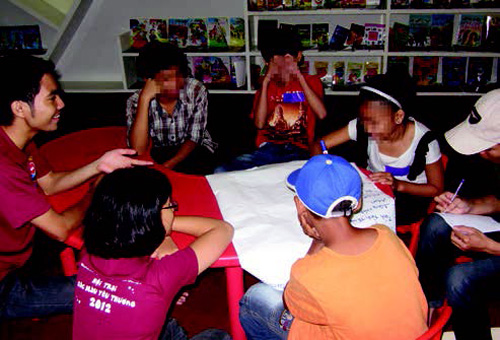Children and adolescents living with HIV face a host of complicated health and social issues, including coping with their diagnosis and sharing it with others. In Asia, poverty and HIV-related stigma often prevent HIV-positive youth from accessing the healthcare and social support they need and from staying in school, both of which limit their options for the future. In 2010, only 39% of the 180,000 HIV-positive children and adolescents in Asia in need of antiretroviral treatment were receiving it.

Children attend a training at Worldwide Orphans in Ho Chi Minh City, Vietnam. Photo: Worldwide Orphans
In August, TREAT Asia—with the help of a generous donation from an anonymous donor—issued a third round of Social Support Awards to bolster the efforts of four organizations in its pediatric network to improve psychosocial support for HIV- positive young people, keep them in school, and ensure they get age-appropriate medical treatment.
“Adolescence is a transitional period full of critical decisions and turning points,” says Pornsuda Nipathakosol, project manager of the TREAT Asia pediatric program. “These programs will greatly benefit the adolescents’ ability to engage in and adhere to their medical treatment, and to grow through appropriate developmental stages alongside their peers.”
The four organizations are: HIV-NAT/ Thai Red Cross AIDS Research Centre in Bangkok and Chiangrai Prachanukroh Hospital in Chiang Rai, Thailand; the National Pediatric Hospital in Phnom Penh, Cambodia; and Worldwide Orphans (WWO) in Ho Chi Minh City, Vietnam. They will use the awards, ranging from $7,500 to $15,000, to support the training of healthcare providers, young people, and their families to improve how children are told they have HIV (a process called disclosure), and to help older adolescents transition into adult care.
“It is critical that children continue to receive support after disclosure,” says Ngo Thuy, country director of WWO. “The support mitigates the shock, fear, and distress of the children and their guardians, so they can build up resilience and perseverance together.”